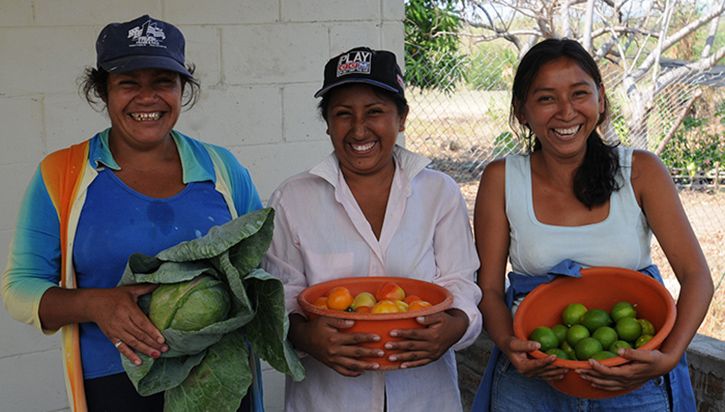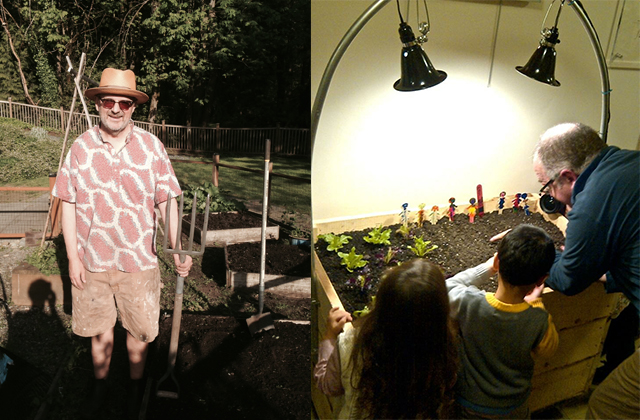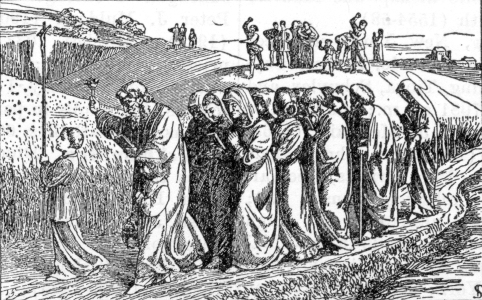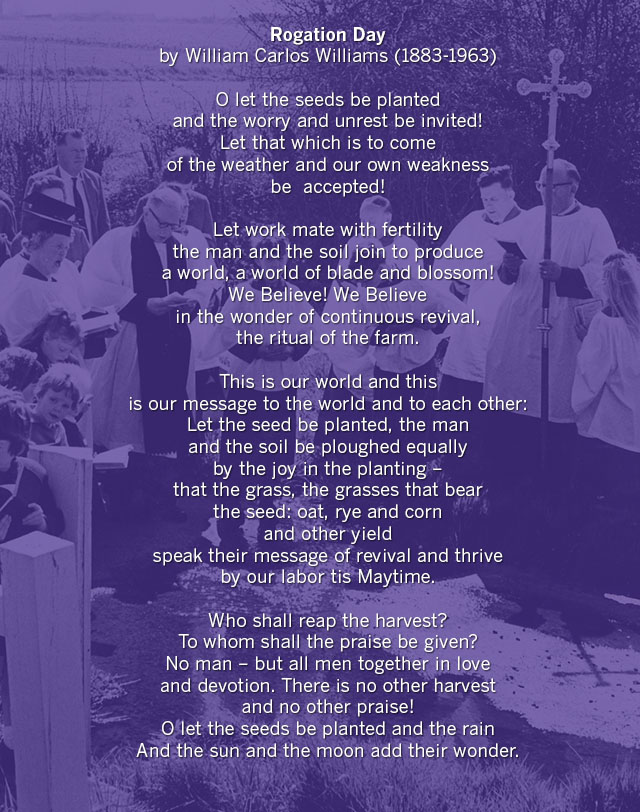Rogation Days: Holy Neighborliness

Rogationtide is fast becoming my favorite Church season that was once rarely talked about but now is making a come back. Maybe it’s the renewed interest in gardening and the relationship it has with our larger role in participating in the stewardship and cultivation of earth’s abundance. Rogationtide happens for a few days just before Ascension Day. Traditionally celebrated Monday, Tuesday and Wednesday of the sixth week of Easter, many congregations celebrated Rogation yesterday and others will celebrate this coming Sunday. I’m celebrating the whole week, since the sun is currently shining in Seattle.

Rogationtide has a fascinating history that dates all the way back to 470 AD when France was in turmoil – the Goths were invading, so the threat of war was constantly looming; communities were experiencing all manner of disasters – disease, fires, earthquakes and even wild animal attacks. It is during this time that the Bishop of Vienne, Mamertus turned to prayer and procession, starting the official Christian version of Rogationtide. The perfect storm of uncertainty existing at the inception of this celebration can feel all too familiar in our current day and age.

Rogare’ is Latin for ‘to ask.’ Rogationtide is a festival primarily focused on the planting season to ask for an abundant harvest in light of calamities such as war, disease, bad weather and natural disasters. Way-back-when it included a walk around the boundaries of the parish. There was a tradition of “beating the bounds” whereby processions stopped at boundary marks and other significant parish landmarks for prayers, reading of the Gospel, affixing the cross and marking said boundaries with long sticks. They also took the time to say hello and check in with the neighbors.
This idea of checking in with your neighbors reminds me of Rev. Pam Dolan’s sermon from last year’s Rogation Day, where she highlighted the notion of holy neighborliness. The idea she shared was that the gathering of people for Rogation Day was not just about being a nice neighbor but about a deeper realization of our complete interconnectedness to each other, not only in the physical but also the spiritual. She explained that Rogation was not just about celebrating our cooperation in the fields or sharing the workload but it was about experiencing love in the plural, love practiced in community.
In his Rogation Day poem William Carlos Williams agrees.

The idea of shared experiences and shared gratitude together promotes a sense of neighborliness and love.
So what does this all have to do with Episcopal Relief & Development? There are literally hundreds of stories of ways in which our staff, partners and volunteers have prayerfully planted seeds, tended God’s garden and harvested the fruits. Our ministry of alleviating hunger includes a multitude of prayerful actions that come from a dependence on God’s blessing, but most importantly, it includes the community aspect of working together and of cultivating wholesome relationships – holy neighborliness.
Here are a few resources for you to learn more about our AgriMinistry:
STORIES:
Donkeys With Plows
Atoll Permaculture
Crisis to Stability
VIDEOS:
Nicaragua
Burundi
Philippines
OTHER LINKS:
Rogationtide: Old, New, Eternal
Why Celebrate Rogation Days
Prayers for Rogationtide
——————————————-

Brian Sellers-Petersen is Senior Advisor to the President at Episcopal Relief & Development
Images: Top left, Brian working in his garden. Top right, Indoor farming demonstration at the Trinity Wall Street Family Table. Middle, historical rendition of a Rogation Day procession. Last, community in Nicaragua working together.
Healing the world starts with your story!
During the 75th Anniversary Celebration, we are sharing 75 stories over 75 weeks – illustrating how lives are transformed through the shared abundance of our partners and friends like you! We invite you to join us in inspiring our vibrant community by sharing your own story!



